Toys have always been an integral part of childhood. From simple wooden blocks to high-tech gadgets, toys have evolved over the years. But more than just a source of entertainment, toys serve a greater purpose in a child's development and growth. In this article, we will explore the essential benefits that toys provide for children.
We all know that children love to play with toys, but what many parents may not realize is that playing with toys has far-reaching effects on their child's physical, mental, and emotional well-being. Toys help develop important skills such as problem-solving, creativity, and social interaction. They also aid in the development of fine motor skills and hand-eye coordination.
In this article, we will delve deeper into the purpose of toys and how they contribute to the holistic growth of a child.
What Is Play and Why Is It Important?
Play is a natural and spontaneous activity that brings joy to children. It involves any activity that children engage in for fun rather than for practical purposes. Play can range from imaginative and pretend play to physical games and puzzles.
But beyond just being a source of entertainment, play is crucial for a child's development. It helps them learn about the world around them and make sense of their experiences. Through play, children explore their surroundings, experiment with different roles, and express themselves creatively.
Moreover, play fosters important skills such as critical thinking, problem-solving, decision-making, and self-regulation. These skills are vital for success not only in childhood but also in adulthood.
Main Purpose of Toys For Children
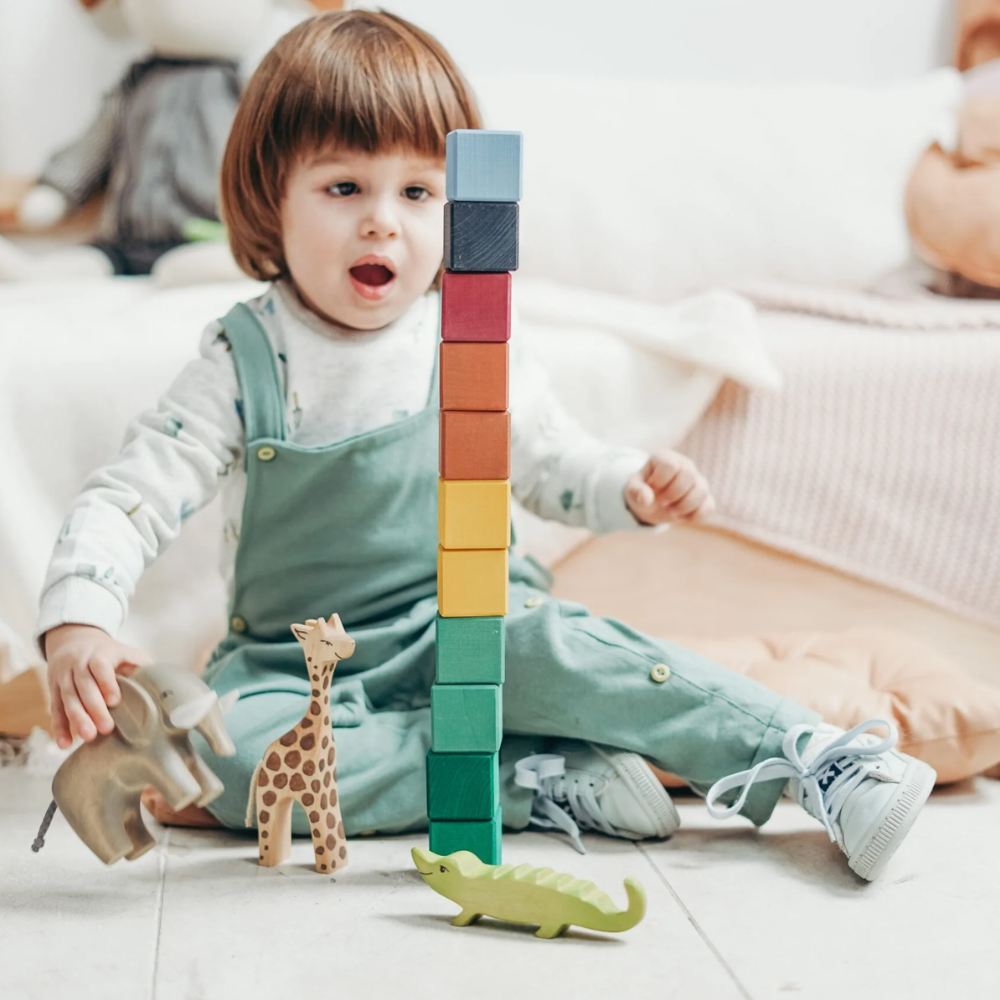
Now, let's focus on toys and their purpose in a child's development. Toys are not just objects to keep children occupied; they serve as tools for learning and growth. Here are some essential purposes of toys for children:
Stimulate Imagination and Creativity
Stimulating a child's imagination and creativity is one of the fundamental purposes of toys. Through imaginative play, children can explore different scenarios, experiment with ideas, and develop their creative thinking skills.
Toys that encourage imagination and creativity provide an open-ended play experience, allowing children to envision and create their own stories, settings, and characters. Whether it's building blocks, dress-up costumes, or pretend play sets, these toys empower children to think outside the box, problem-solve, and express themselves freely.
By engaging in imaginative play, children can develop vital skills such as abstract thinking, storytelling, and self-expression, nurturing their creativity and paving the way for a lifetime of inventive thinking.
Enhance Cognitive Skills
Toys also play a crucial role in enhancing a child's cognitive skills. From puzzles and board games to educational toys, these playthings help children learn important concepts such as colors, shapes, numbers, and letters in a fun and engaging way.
Cognitive skills are essential for a child's academic success and overall development. By providing opportunities for children to engage with different types of toys, parents can support their children's cognitive growth and prepare them for school.
Develop Fine Motor Skills
Fine motor skills refer to the ability to control small movements using the fingers and hands. These skills are crucial for everyday tasks such as writing, tying shoelaces, or buttoning clothes. Toys that involve manipulating objects, such as building sets or art supplies
Promote Physical Activity
In today's age of technology and screens, it's more important than ever to encourage physical activity in children. Toys such as bicycles, balls, and outdoor equipment provide opportunities for kids to engage in active play and exercise.
Physical activity is vital for maintaining good health and preventing obesity in children. Through toys that promote movement and physical activity, parents can help their children develop healthy habits from a young age.
Encourage Social Interaction
Toys also serve as tools for social interaction and communication. Whether it's playing with siblings, friends, or parents, toys provide a shared experience that promotes bonding and teamwork.
Toys that encourage group play, such as board games or team sports equipment, help children learn important skills such as cooperation, compromise, and communication. These skills are crucial for building relationships and navigating social situations throughout life.
Types of Toys and Their Benefits for Children
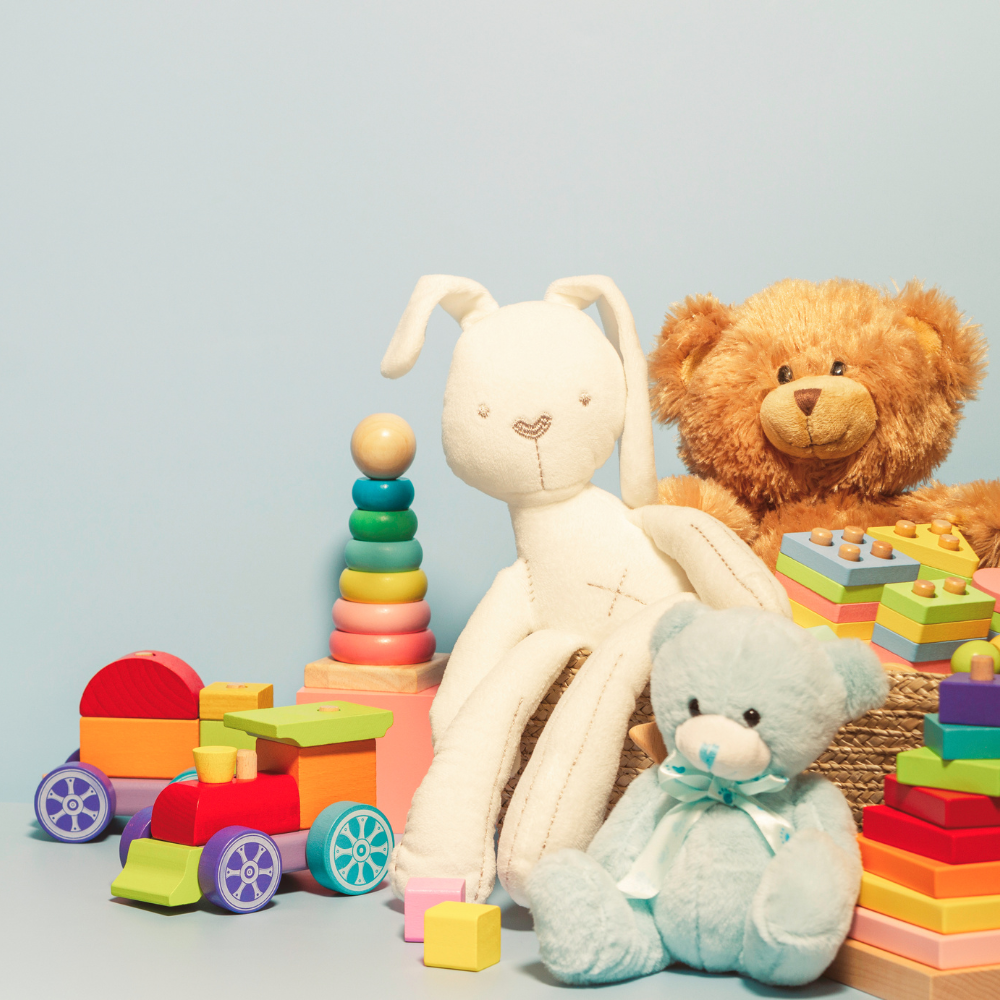
Toys come in various shapes, sizes, and forms, each catering to different developmental needs. Here are some common types of toys and their benefits:
1. Building Sets
Building sets such as LEGO blocks or magnetic tiles provide endless opportunities for creativity and imagination. These toys help develop fine motor skills as children manipulate the pieces to build structures.
Moreover, building sets also foster problem-solving and critical thinking skills as children figure out how to construct their creations and make them stable.
2. Montessori Toys
Montesori toys are based on the Montessori education method, which focuses on self-directed and hands-on learning. These toys aim to develop a child's independence, problem-solving skills, and focus.
Examples of Montessori toys include wooden puzzles, shape sorters, and sensory play materials. These toys promote fine motor skills, cognitive development, and sensory exploration. Plus, they also foster a love for learning and discovery in children.
3. Educational Toys
As the name suggests, educational toys have a specific focus on teaching important concepts and skills. These toys come in various forms, from puzzles and games to electronic learning devices.
Through educational toys, children can learn about different subjects, such as math, science, or language, in a fun and interactive way. These toys also help develop critical thinking and problem-solving skills as children work through challenges and puzzles.
4. Outdoor Toys
Outdoor play is crucial for a child's physical and mental development, making outdoor toys an essential part of childhood. From bicycles to slides, these toys promote physical activity, coordination, and spatial awareness.
Moreover, outdoor play also provides opportunities for sensory exploration as children engage with nature and their surroundings through touch, sight, sound, and smell.
These are just a few examples, and there are countless other types of toys that offer unique benefits for children. As parents, it's essential to understand the purpose and benefits of different toys to make informed choices for our children.
Does the Quality of Toys Matter?
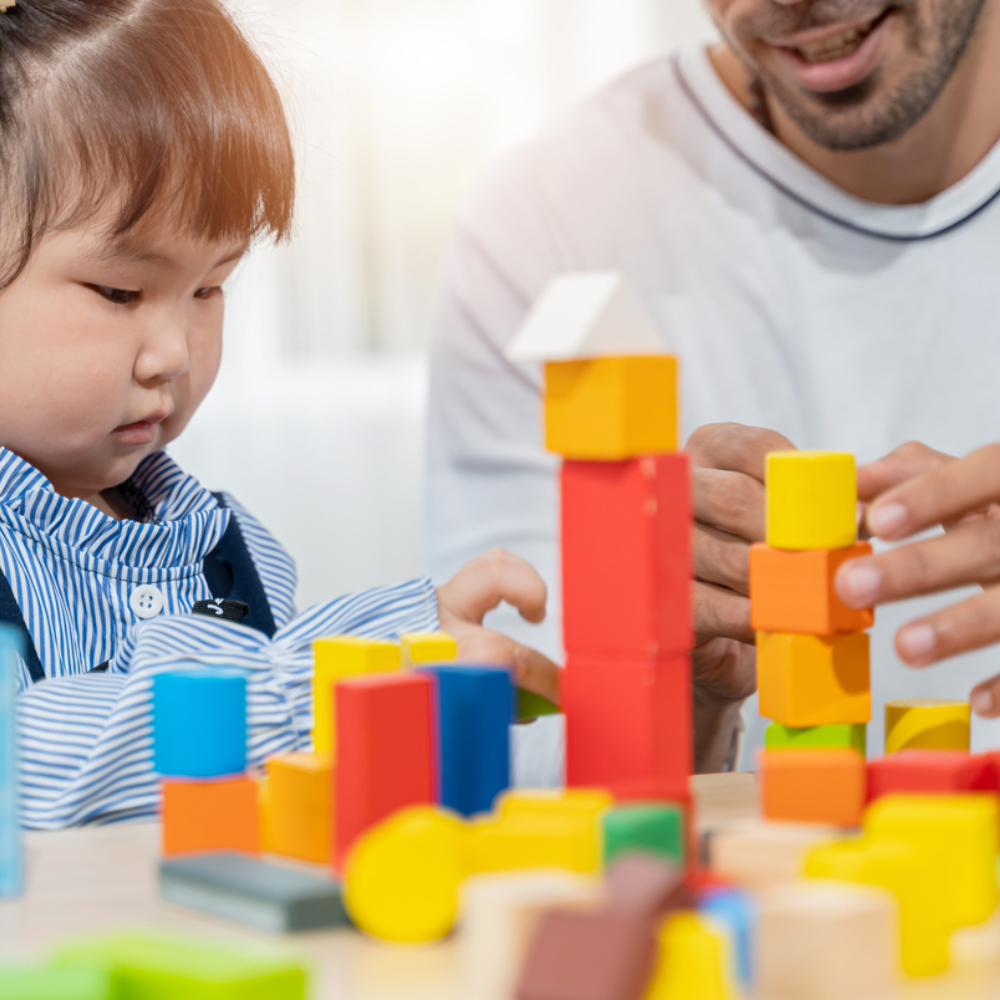
When it comes to toys, quality does matter. High-quality toys are designed with a child's developmental needs in mind, and they are made to withstand wear and tear for long-term use.
On the other hand, low-quality or poorly made toys may not only fail to provide the intended benefits but can also pose safety hazards for children. Cheap plastic toys, for example, may contain harmful chemicals that can be dangerous if ingested.
Furthermore, high-quality toys often have better design and construction, making them more engaging and enjoyable for children. So when choosing toys for your child, it's essential to consider factors such as material quality, durability, and age-appropriateness.
Plus, investing in high-quality toys may also save you money in the long run as they are less likely to break or need frequent replacements.
Tips For Clean and Safe Play
To ensure that toys continue to provide safe and beneficial play for children, it's important to take proper care of them. Here are some tips for clean and safe play:
- Regularly check toys for any broken or loose parts and repair or replace them if needed.
- Follow age recommendations when buying toys to avoid potential choking hazards.
- Clean toys regularly with mild soap and water, especially those that come in direct contact with the child's mouth or hands.
- Store toys in a designated area away from high-traffic areas to prevent accidents.
- Teach children proper toy safety rules, such as not throwing or using toys in dangerous ways.
- Rotate toys regularly to keep playtime interesting and prevent overuse.
- Consider the child's developmental stage and interests when choosing toys to ensure they are engaging and beneficial.
By following these tips, parents can help maintain a safe and clean play environment for their children while prolonging the life of their toys.
How Many Toys Should A Child Have?
One common question among parents is how many toys a child actually needs.
For example, for young toddlers, 5-10 toys may be enough to provide a variety of play experiences without causing overstimulation. As children grow older, they may benefit from having more options, but still within reason.
Moreover, it's important to consider the quality and purpose of toys rather than just quantity. A few high-quality, versatile toys that cater to different developmental areas can often be more beneficial for a child than a room full of cheap, one-dimensional toys.
Tips For Choosing The Best Toys For A Child
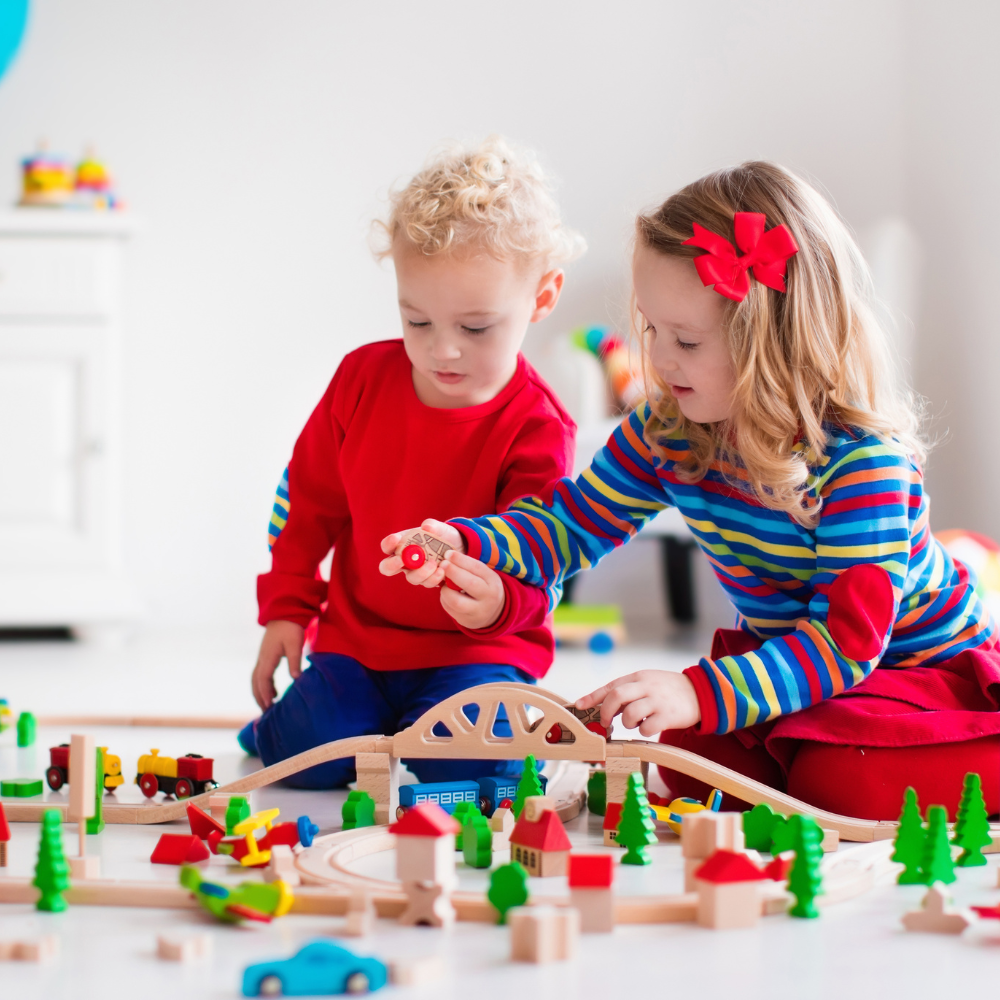
There are many things to consider when choosing toys for a child, including their age, interests, and developmental stage. Here are some general tips to keep in mind:
- Consider the educational or developmental benefits: Look for toys that promote specific skills or concepts such as fine motor skills, problem-solving, or creativity.
- Choose age-appropriate toys: Toys that are too advanced may frustrate children, while those that are too simple may bore them.
- Encourage open-ended play: Open-ended toys like blocks and dolls allow for limitless possibilities and encourage imagination and creativity in children.
- Think about your child's interests: Consider their hobbies, favorite characters, or activities to choose toys they will be excited to play with.
- Consider the toy's safety: Always check for age recommendations and potential choking hazards before buying a toy.
- Involve your child in the decision-making process: Letting children have a say in choosing toys can help them feel more invested and interested in playing with them.
By following these tips, parents can make informed decisions when selecting toys for their child that will not only provide entertainment but also promote learning and development.
Does Gender Matter When Choosing Toys?
There is a common misconception that toys should be gender-specific, with certain toys being marketed towards boys and others towards girls. However, research shows that children's interests are not determined by their gender but rather by individual preferences and exposure to different types of play.
In fact, limiting a child's access to certain types of toys based on their gender can hinder their development and limit the range of skills they can acquire.
Therefore, it's important for parents to consider a variety of toys regardless of traditional gender stereotypes and let children choose which ones they gravitate towards naturally. This will not only promote open-mindedness but also allow for more diverse play experiences.
FAQs
How do toys contribute to emotional development in children?
Toys play a key role in emotional development by helping children express feelings, build confidence, and develop coping skills. This support is essential for social and emotional development.
How do toys encourage motor skills development?
Toys that require movement, like blocks or puzzles, help with fine motor skills development. Outdoor toys can also improve gross motor skills by engaging larger muscles.
What role do toys play in language development?
Toys like books or interactive games promote language development by encouraging children to practice words and phrases. These activities also boost language skills over time.
Can toys enhance social skills in group play?
Yes, toys encourage group activities that help children develop social skills. They learn to share, take turns, and cooperate, which enhances their social and emotional development.
How do toys contribute to physical development?
Toys that require physical activity, like balls or ride-on toys, support physical development by improving coordination and balance. Such play strengthens gross motor skills.
Are toys important for both social and emotional development?
Absolutely, toys foster social and emotional development by promoting teamwork, empathy, and emotional understanding. They are valuable tools for building relationships and communication skills.
Conclusion
In conclusion, toys play a vital role in a child's development and growth. They stimulate imagination and creativity, enhance cognitive skills, develop fine motor skills, promote physical activity, and encourage social interaction.
Also, the type and quality of toys a child plays with can have a significant impact on their overall well-being. By choosing high-quality, age-appropriate toys and following proper care and safety measures, parents can provide their children with a safe and enjoyable play environment that promotes healthy development.
Remember to involve your child in the toy selection process and let them explore and play freely without gender limitations. By doing so, you are setting the foundation for a happy and healthy childhood. So keep these tips in mind when choosing toys for your child, and watch them grow and thrive through play!
Subscribe to our email newsletter and unlock access to members-only content and exclusive updates.
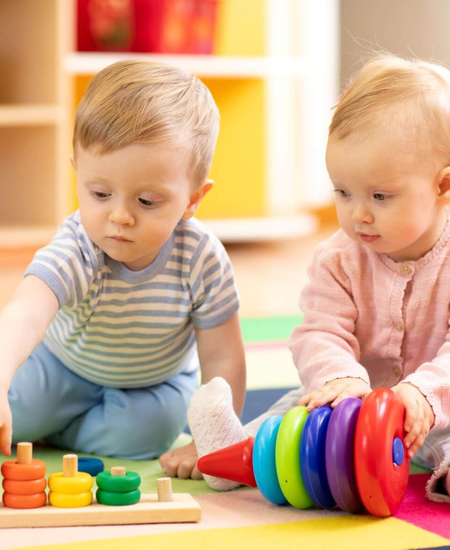
Comments